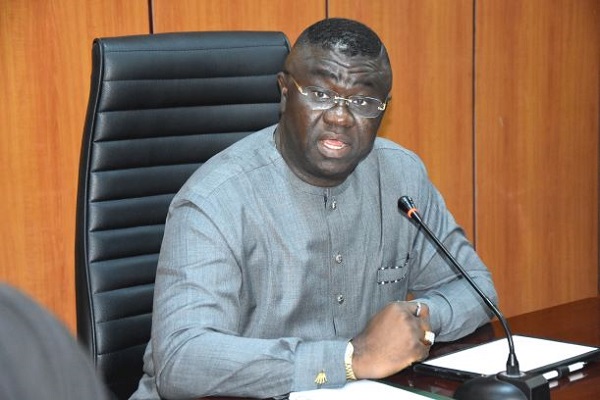News
FG renews commitment to reforming police, rebuilding citizens’ trust

Mr Clement Agba, the Minister of State for Finance, Budget and National Planning, has renewed Federal Government commitment to reform the Police as well as rebuilding the trust between the police and the citizens.
Agba, disclosed this on Thursday in Abuja during the ongoing 2021 Open Government Partnership (OGP) Week for “Citizens – Police Dialogue on rebuilding trust in Nigeria policing system”.
“This dialogue is a confirmation of President Muhammadu Buhari’s commitment to implement open government ideals and willingness to sustain his resolve to improve relations between citizens and the police.
“The OGP week is a week set aside globally for open government doers, leaders, and thinkers from around the world to come together to share ideas, discuss solutions and commit to new levels of citizen participation in government,” the minister added.
He said this year’s open government week theme focuses on how leaders renew or rebuild governments, institutions and societies that were transparent, accountable, participatory and inclusive.
“The Nigeria Open Government Partnership, National Steering Committee has decided to focus on two critical areas of our National Action Plan-Beneficial Ownership Transparency and Civic Space.
“On beneficial ownership transparency, we had a media presentation of Nigeria’s Road to Beneficial Ownership Transparency and here today, we are having this dialogue on rebuilding trust between the police and citizens through this Citizens – Police Dialogue,” Agba said.
The minister recalled that last year, the president approved the implementation of Nigeria’s second National Action Plan (NAP) which made extensive commitments around citizens’ engagement in governance.
He said that as government began the implementation of the plan that was co-created by government and citizens groups, the COVID-19 pandemic broke out, halting all activities globally.
Agba said within the period, Nigeria also experienced the #EndSARS Protests which was as a result of citizens reacting to police brutality.
“The National Steering Committee jumped on this opportunity and approved the extension of the implementation period of Nigeria’s second NAP by one year.
“It also allowed stakeholders to review existing commitments with a view to revising these commitments to reflect government’s responses to COVID-19, the #EndSARS Protests and other governance issues.
“After extensive consultation, stakeholders approved inclusion of activities around government response to the COVID-19 and the #EndSARS protests,’’ he added.
Agba said that the government had collaborated with civil society partners and revised the second NAP.
He said the revision included the following activities: Pass the Bill for an Act to Repeal the Police Service Commission Act and Enact the Police Service Commission Bill, 2020.
The revision was also to make Police Service Commission (PSC), National Human Rights Commission (NHRC), National Orientation Agency (NOA) and their Non-State Actors partners hold a quarterly zonal `Citizen-Police Dialogue’.
To ensure joint PSC/CSO-led quarterly select police station visitation to ascertain the condition of the stations, adherence to standard operating procedure and conditions of suspects held in the stations.
He said that the aim of amending the law setting up the Police Service Commission was to improve on their powers, operations and ability to carry out oversight supervision of the police.
The minister urged every Nigerian to actively join the process of rebuilding trust and building back a better Nigeria Police Force that works for all.
Mr Sunday Dare, the Minister of Youths and Sports, said as part of the government’s commitment to promoting the civic space in Nigeria, citizens’ participation in government was at the centre of open government.
He added that citizens’ participation in government has been one of the important rudiments of the 2nd OGP National Action Plan.
Dare, represented by his special adviser, Mr Abiodun Owoborose, said that Nigerian citizens had the right to express themselves freely as well as come together for their voices to be heard for a common purpose.
“It is a no brainer that government’s collaboration and engagement with citizens, citizen-led groups and other non-governmental organisations is essential to securing long term reforms in government.
“This is because citizens’ participation in government seeks out and facilitates the involvement of those potentially affected by government’s decision.
“It also promotes sustainable decisions and policies by recognising and communicating the needs of the citizens and decision makers,” he said.




 Davido's Net Worth & Lifestyle
Davido's Net Worth & Lifestyle 
